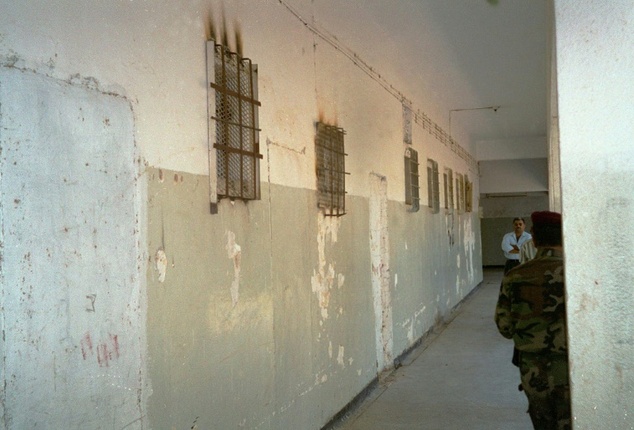Israel rejects UN panel's concerns of prisoner abuse
Israel on Wednesday rejected the concerns of a UN panel over alleged violations in its prisons, including a purported surge in solitary confinements, insisting such tactics were used only in "extremely restricted" cases.
The United Nations Committee against Torture, reviewing Israel for the first time since 2009, on Tuesday asked a government delegation about reports of multiple serious abuses in prisons, particularly against detained Palestinians.
Committee chair Jens Modvig cited figures indicating that solitary confinements in Israel had nearly doubled from 2012 to 2014, jumping from 390 to 755 over the period.

Broadly, UN committee chair Jens Modvig noted that while Israel had robust prisoners rights legislation in place, key rights could easily be cast aside in the name of national security ©Imad Abu Sunbul (AFP/File)
The deputy director of the human rights department at Israel's foreign ministry, Michal Sarig-Kaduri, told the UN panel that solitary confinements were "extremely restricted and used for short and limited periods of time, for a maximum of 14 days only."
She explained that while some detainees were placed in solitary confinement as a punitive measure, others were held in "separation" when they posed a threat to themselves or other inmates.
"As of today, 190 prisoners, which constitutes only one percent of all prisoners, are held in separation in Israeli prisons," Sarig-Kaduri said.
She also insisted that solitary confinement was not used as an interrogation technique.
Modvig appeared to cast doubt on that claim and urged Israel to provide a detailed account on how often prisoners are isolated to aid investigators, including in terrorism cases.
Broadly, Modvig noted that while Israel had robust prisoners rights legislation in place, key rights could easily be cast aside in the name of national security.
"There are so many exceptions," Modvig said. "The concern is that these rights exist, (but) only subject to security concerns."
In February, two Israeli NGOs claimed in a report that the Shin Bet domestic security agency perpetrated systematic abuses against Palestinians during interrogation.
The Israeli delegation did not directly respond to questions from the UN committee about reported verbal sexual harassment and sexual assault against Palestinian female detainees.
Modvig on Tuesday raised concern that Israel has no specific legal provision banning torture, with the crime covered by other offences.
Israel's deputy attorney general Roy Schondorf told the panel that a bill separately enshrining a ban on torture in the criminal code was working its way through the country's parliament.








































































































































































































































